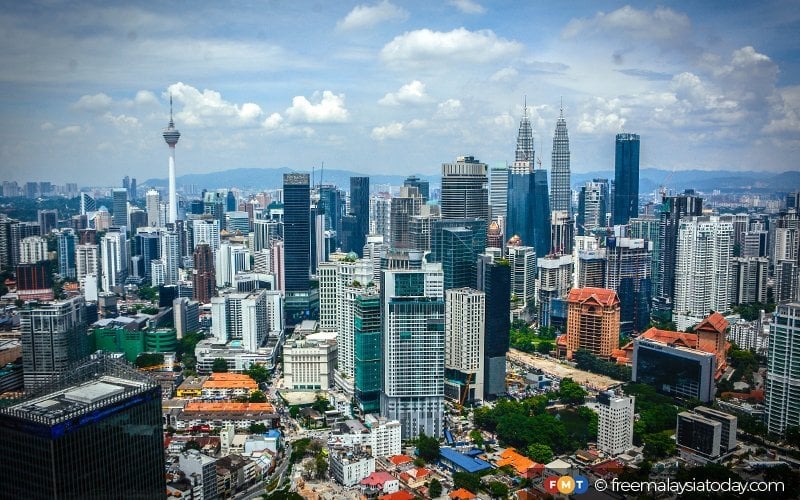
PETALING JAYA: In August 2022, Malaysia agreed in principle to implement the global minimum tax (GMT) of 15% on certain multinational corporations (MNCs).
The global tax was instituted by the Organisation for Economic Cooperation and Development (OECD), which said 136 countries, including Malaysia, were ready to undertake reforms in the global taxation system.
Last week, deputy finance minister Ahmad Maslan said the GMT would likely be tabled in the Dewan Rakyat this year. He also said the country could gain RM1 billion in tax revenue for a start when the GMT is introduced.
However, it is not known when the GMT will be officially implemented in Malaysia.
FMT takes a look at what the GMT is all about, who will be affected and what business groups as well as economists have to say about it.
What is the global minimum tax?
The GMT is a global tax reform introduced by the OECD to curtail tax competition and profit shifting.
The idea is for MNCs to pay the right amount of taxes, which is 15%, no matter where they operate. This means that MNCs can operate in low-tax, high-tax, or zero-tax countries or in a country that offers tax incentives, but the universal GMT rules will kick in to ensure 15% tax is paid.
The Income Inclusion Rule (IIR), being the main rule, is to be rolled out first, while the backstop rule, the Undertaxed Payments Rule (UTPR), is targeted to be implemented the following year. All rules operate as “top-up” to a 15% minimum tax.
Who will be affected?
GMT will only apply to MNCs operating in at least two jurisdictions, with an annual consolidated group revenue of at least £750 million (RM3.5 billion) in at least two of the four immediately preceding fiscal years.
There are two categories of MNCs that need to be fully aware of the impact of GMT:
- Large Malaysian-based MNCs that have foreign operations; and
- Foreign-based MNCs that have operations in Malaysia.
Possible hits and misses
According to Malaysian International Chamber of Commerce and Industry (MICCI) executive director Shaun Cheah, MNCs are unlikely to face problems when GMT is implemented.
“Any financial implication sustained would be minor as MNCs can offset it by cutting expenditure, hiring fewer people, and so on,” he said.
However, if existing foreign MNCs do “pack up and leave”, Cheah said, it would imply that the cost of doing business in Malaysia had significantly increased following the implementation of the GMT.
Federation of Malaysian Business Associations vice-chairman Raymond Woo said there was a need for clarity about the new regulations, especially regarding the pioneer tax statuses awarded to foreign MNCs.
The pioneer status is an incentive in the form of tax exemption for a period of five or 10 years.
“The government will need to provide details on whether the GMT would contradict any previous agreements made with the MNC,” he said. “For example, will the GMT render the previously tax exemptions granted to MNCs invalid?”
Carmelo Ferlito of the Center for Market Education, on the other hand, is sceptical of the RM1 billion tax revenue target, saying that the figure “made no sense” since Malaysia’s current corporate tax rate of 24% is higher than the GMT of 15%.
“The country can only gain such an amount of revenue if the GMT applies to those who do not currently pay taxes due to low income,” he said.
Bad for investors?
Ferlito is opposed to Malaysia jumping on the GMT bandwagon, viewing the tax as a move by developed countries, which are unable to compete on a global scale, to limit other countries’ ability to compete.
“It will penalise those countries that have better fiscal discipline and thus can levy lower taxes on their citizens.
“At the same time, it is a reward for less virtuous countries, which are always looking for more taxes because of their inability to use their resources efficiently,” he said.
As a result, Ferlito said, the GMT could affect investor decisions, which may reduce investment opportunities and lower profit expectations.
“GMT will be an-anti business regulation, resulting in a negative investment mood, and therefore less investment and fewer job opportunities,” he said.
Cheah said if foreign investors find the GMT repulsive, Malaysia must then find new ways to remain competitive or appealing.
“It could be achieved by retaining skilled local talent and making land and resources, such as water and electricity, easily accessible.
“Malaysia could also leverage on the Regional Comprehensive Economic Partnership (RCEP) and the Comprehensive and Progressive Agreement for Trans-Pacific Partnership (CPTPP), which provide Westerners with greater access to eastern markets, including Malaysia,” he said. - FMT



No comments:
Post a Comment
Note: Only a member of this blog may post a comment.